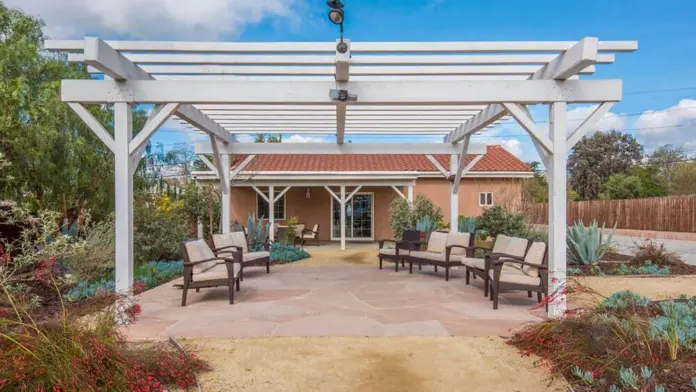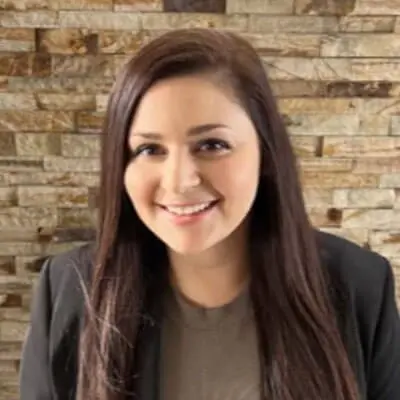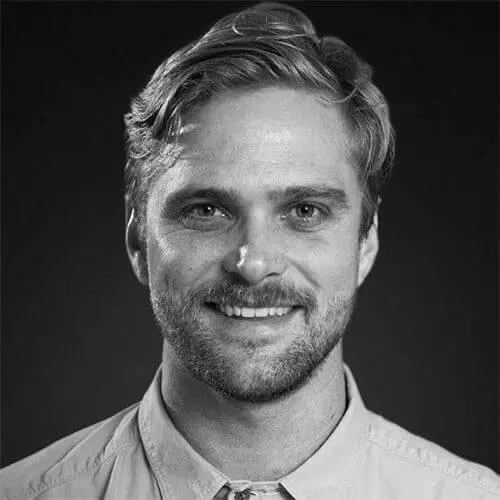About Restore Health and Wellness Center
Restore Health and Wellness Center is a drug and alcohol rehab center located in Encino, California. Clients can receive a wide range of services to support their recovery such as dual diagnosis treatment, LGBT therapy and a women’s program.
Unique Alternative Therapies
One thing that I think makes Restore Health and Wellness Center unique is the diverse range of alternative therapies used to treat addiction. Staff members may incorporate therapeutic approaches such as pain management, nutritional therapy and wellness programs.
Chronic pain can sometimes lead individuals to become addicted to prescription drugs. Through pain management, you’ll learn new ways to deal with pain. You’ll also learn to manage the emotions that occur due to the pain so you are less likely to self medicate.
Nutrient deficiency can contribute to depression, physical ailments and other issues that may contribute to your addiction. Nutritional counseling will focus on using food to improve your mental health and repair the damage that substance use has caused to your body.
Targeted Care for Women and LGBTQ Individuals
Some groups of people can experience addiction differently than others. The facility offers targeted addiction treatment for women and LGBTQ individuals. In the women’s program, counselors address issues that typically contribute to addiction such as family relationships and abuse.
LGBTQ individuals often experience feelings of isolation and oppression that can sometimes lead them to abuse substances. The facility provides LGBT therapy to specifically focus on the issues affecting you and give you a comfortable space to open up.
Recovery Services Close to Nature
The facility is not far from various outdoor attractions that can provide relaxation and healing. Some places where you can enjoy a nice hike include Santa Monica Mountains National Recreation Area and Chatsworth Nature Preserve.
Latest Reviews
Rehab Score
Gallery




Accepted Insurance
Other Forms of Payment
Private insurance refers to any kind of healthcare coverage that isn't from the state or federal government. This includes individual and family plans offered by an employer or purchased from the Insurance Marketplace. Every plan will have different requirements and out of pocket costs so be sure to get the full details before you start treatment.
Self-pay involves paying for treatment out of your own pocket. You can use savings or credit, get a personal loan, or receive help from family and friends to fund your treatment. If you don't have insurance or your insurance plan doesn't cover a specific program, self-pay can help ensure you still get the care you need.
Addiction Treatments
Levels of Care
 Outpatient
Outpatient
 Inpatient
Inpatient
 Intensive Outpatient
Intensive Outpatient
 Aftercare Support
Aftercare Support
 12-Step
12-Step
 Sober Living Homes
Sober Living Homes
 Intervention Services
Intervention Services
 24-Hour Clinical Care
24-Hour Clinical Care
 Medically Assisted Detox
Medically Assisted Detox
Treatments
The goal of treatment for alcoholism is abstinence. Those with poor social support, poor motivation, or psychiatric disorders tend to relapse within a few years of treatment. For these people, success is measured by longer periods of abstinence, reduced use of alcohol, better health, and improved social functioning. Recovery and Maintenance are usually based on 12 step programs and AA meetings.
Drug rehab in California teaches participants constructive ways to stay clean and sober. Treatment revolves around helping individuals stop using the substance they are addicted to and learn healthy habits to avoid relapse.
Co-occurring disorders are very common, and are often the leading cause for relapse in people suffering from addiction. The term ‘co-occurring disorders’ is used to describe the existence of both an addiction and a mental illness. These two disorders are commonly intertwined, because one can often fuel the other. Although co-existing disorders are quite common, they frequently go undiagnosed. Conventional treatment methods tend to isolate one problem and leave the other untreated. However, at Restore Treatment Center, they believe that in order for a person with a dual diagnosis to be successful in recovery, both conditions must be addressed concurrently through specialized care.
Opioid rehabs specialize in supporting those recovering from opioid addiction. They treat those suffering from addiction to illegal opioids like heroin, as well as prescription drugs like oxycodone. These centers typically combine both physical as well as mental and emotional support to help stop addiction. Physical support often includes medical detox and subsequent medical support (including medication), and mental support includes in-depth therapy to address the underlying causes of addiction.
Substance rehabs focus on helping individuals recover from substance abuse, including alcohol and drug addiction (both illegal and prescription drugs). They often include the opportunity to engage in both individual as well as group therapy.
Programs

Adult Program

Young Adult Program

LGBTQ Program
Clinical Services
Cognitive Behavioral Therapy (CBT) is a therapy modality that focuses on the relationship between one's thoughts, feelings, and behaviors. It is used to establish and allow for healthy responses to thoughts and feelings (instead of unhealthy responses, like using drugs or alcohol). CBT has been proven effective for recovering addicts of all kinds, and is used to strengthen a patient's own self-awareness and ability to self-regulate. CBT allows individuals to monitor their own emotional state, become more adept at communicating with others, and manage stress without needing to engage in substance abuse.
Group therapy is any therapeutic work that happens in a group (not one-on-one). There are a number of different group therapy modalities, including support groups, experiential therapy, psycho-education, and more. Group therapy involves treatment as well as processing interaction between group members.
In individual therapy, a patient meets one-on-one with a trained psychologist or counselor. Therapy is a pivotal part of effective substance abuse treatment, as it often covers root causes of addiction, including challenges faced by the patient in their social, family, and work/school life. At Restore Health and Wellness Center, individual therapy sessions are conducted in a private setting, which allows the client to feel safe and free to open up, while also helping them become aware of their problems in order to make necessary changes.
Research clearly demonstrates that recovery is far more successful and sustainable when loved ones like family members participate in rehab and substance abuse treatment. Genetic factors may be at play when it comes to drug and alcohol addiction, as well as mental health issues. Family dynamics often play a critical role in addiction triggers, and if properly educated, family members can be a strong source of support when it comes to rehabilitation.
Substances can prevent the absorption of nutrients and cause damage to your body's systems. Nutrition therapy in California addresses the deficiencies in vitamins and minerals that are caused by substance abuse.
The goal of creative arts therapy in California is to encourage growth and transformation. It can be used in individual and group settings with both children and adults. Options include movement, music, and painting.
Experiential therapy is a form of therapy in which clients are encouraged to surface and work through subconscious issues by engaging in real-time experiences. Experiential therapy departs from traditional talk therapy by involving the body, and having clients engage in activities, movements, and physical and emotional expression. This can involve role-play or using props (which can include other people). Experiential therapy can help people process trauma, memories, and emotion quickly, deeply, and in a lasting fashion, leading to substantial and impactful healing.
The goal of nicotine replacement therapy in California is to mitigate the symptoms of nicotine withdrawal. It cuts down on your cravings by supplying a small dose of nicotine without exposing your body to the toxins of cigarette smoke.
Amenities
-
Residential Setting
-
Private Rooms
-
Hiking
-
Mountain Views
-
Walking Trails
Staff & Accreditations
Staff

Aliza Vayngurt
Executive Director

Dr. Christian Small, MD
Medical Director

Donny Barth
Director of Admission
Accreditations

LegitScript has reviewed Restore Health and Wellness Center as part of their certification program, and has determined that it meets the LegitScript standards for legality, safety and transparency.
LegitScript verified in

State Licenses are permits issued by government agencies that allow rehab organizations to conduct business legally within a certain geographical area. Typically, the kind of program a rehab facility offers, along with its physical location, determines which licenses are required to operate legally.
State License: California
License Number: 190858AP

The Joint Commission, formerly known as JCAHO, is a nonprofit organization that accredits rehab organizations and programs. Founded in 1951, the Joint Commision's mission is to improve the quality of patient care and demonstrating the quality of patient care.
Joint Commission Accreditation: Yes
Contact Information
6918 Owensmouth Ave
Canoga Park, CA 91303














